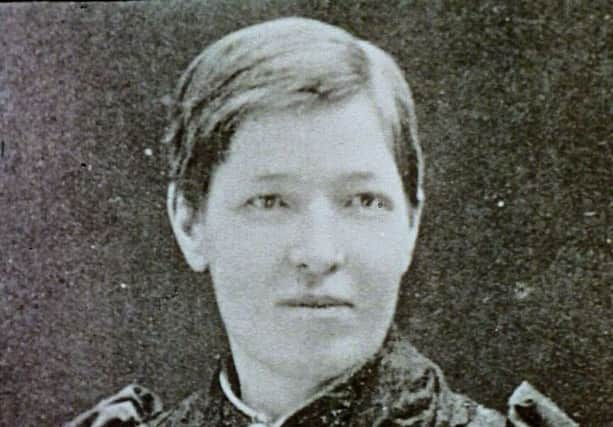Scots to honour legacy of missionary Mary Slessor


The Aberdeen-born missionary followed in the footsteps of fellow Scot David Livingstone to take the teachings of Christianity to Africa in the last quarter of the 19th century.
CONNECT WITH THE SCOTSMAN
• Subscribe to our daily newsletter (requires registration) and get the latest news, sport and business headlines delivered to your inbox every morning
Advertisement
Hide AdShe died on January 13 1915 at 67 after spending 38 years working in Calabar, Nigeria.
She is credited with saving the lives of hundreds of people during her time in west Africa, by stopping sacrifices, brutal punishments and the killing of twins.
Now, 100 years on from her death, plans are in place for a series of centenary events in Nigeria and Scotland, most notably in Dundee where she lived and worked from the age of 11.
Among the events is a plaque-unveiling ceremony in Dundee on the anniversary of her death, and in April the Moderator of the General Assembly of the Church of Scotland will give a service at the same spot.
The Rt Rev John Chalmers praised the way Ms Slessor got close to the people she wanted to help and said she was remembered as one of the most significant of all the Scottish missionaries.
“What is remarkable is that at the end of the 19th century she was in so many ways ahead of her time,” he said.
Advertisement
Hide Ad“She was a woman in a man’s world and was quite prepared to make the rules for herself.”
Ms Slessor worked hard to educate herself despite poverty, a violent, drunken father and a lack of formal education.
Advertisement
Hide AdShe went to Nigeria in the mid-1870s with United Presbyterian Church of Scotland.
In Calabar, she was horrified to find there was a local superstition against twins - which meant hundreds of babies were being murdered or left to die each year. She saved the children by adopting a number of them in the village where she settled.
Mr Chalmers said the saving of the twins was “one of her great achievements”.
He said: “She reached some of the local people no-one had ever reached before, those whose suspicions and habits were deeply ingrained.
“The only way she was ever going to make a difference there was if she learned the language and became completely familiar with the tribal traditions and with the way in which the hierarchy of the tribe worked.
“She didn’t just dismiss the local culture, she tried to understand it and then she tried to find ways to overcome some of the injustices.”
Advertisement
Hide AdThe Scot went on to serve in various places in the region over the years and had several visits home during that time.
She gained the respect of the tribal chiefs to such an extent that they appointed her as a quasi-justice of the peace, a judge-like figure who would settle disputes.
Advertisement
Hide AdShe was also passionate about education, particularly of girls, and was keen to develop trade opportunities with a view to stemming the slave trade.
Mr Chalmers is preparing to head out to Nigeria later this month to take part in commemorations there.
His programme of events begins on January 17 with a visit to a centenary service in Akpap Okoyog, the village where Mary lived and where her house still stands.
He will later witness the laying of wreaths at Ms Slessor’s grave in Calabar and mark Mary Slessor Day at St Peter’s Presbyterian Church in Umuahia parish.
The Moderator said: “There are huge services taking place in all the places where she lived and worked. We’re expecting hundreds of people at these services.
“She’s still remembered at local churches but she’s also very much remembered in the political world of Nigeria as a very significant figure. It’s a big big deal, she holds a prominent place in Nigeria across the country.”
Advertisement
Hide AdIn Scotland, the plaque-unveiling in Dundee will take place on January 13.
The Mary Slessor Foundation, which commissioned the piece, hopes to increase awareness of the “remarkable” woman, who, they say, is little known in her own city despite her huge achievements.
Advertisement
Hide AdIn March, the McManus Galleries will be hosting a Mary Slessor-themed evening and the chairman of the Foundation will give a lecture on her work at the Dundee and Angus College.
From April, the foundation will also be organising a six-month exhibition telling the story of Ms Slessor at Verdant Works: Scotland’s Jute Museum.
SCOTSMAN TABLET AND IPHONE APPS